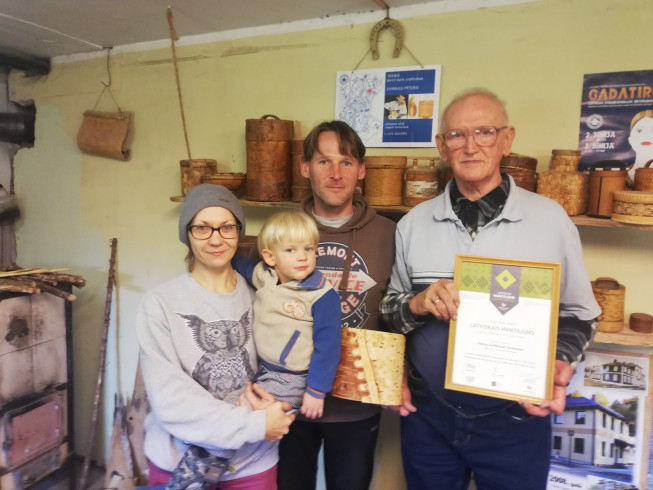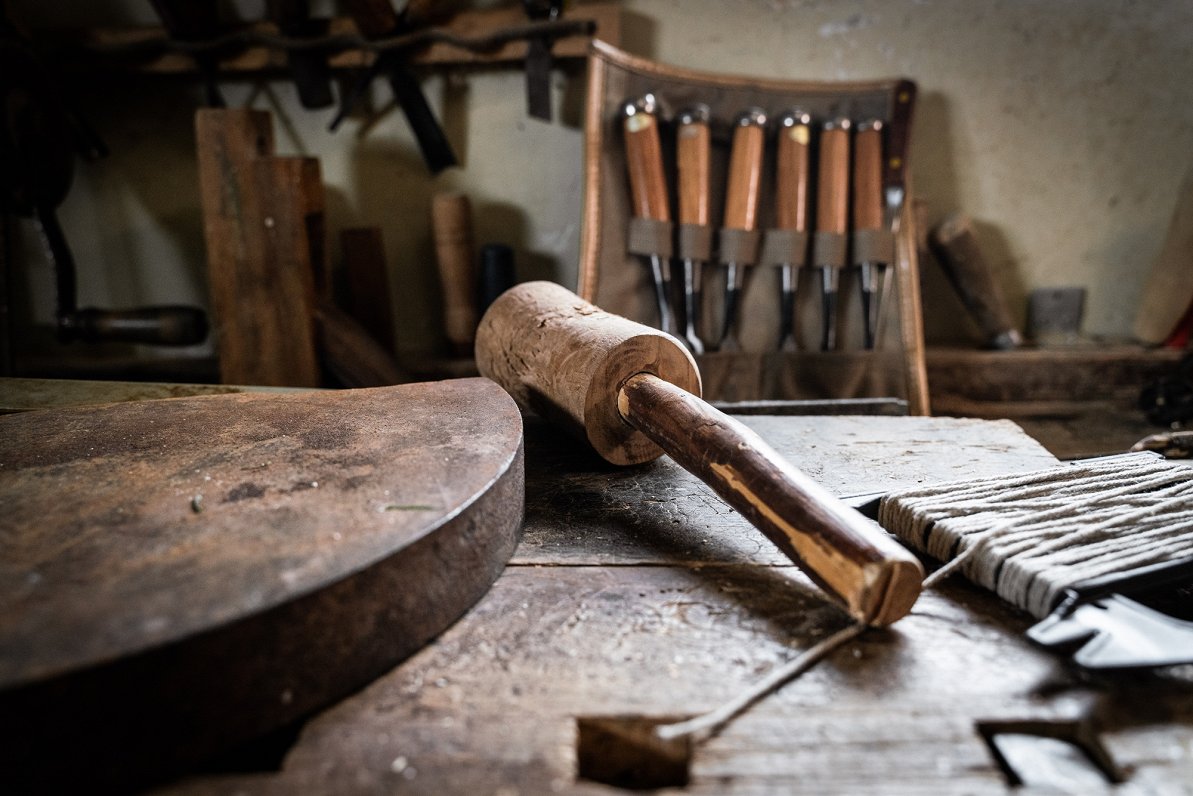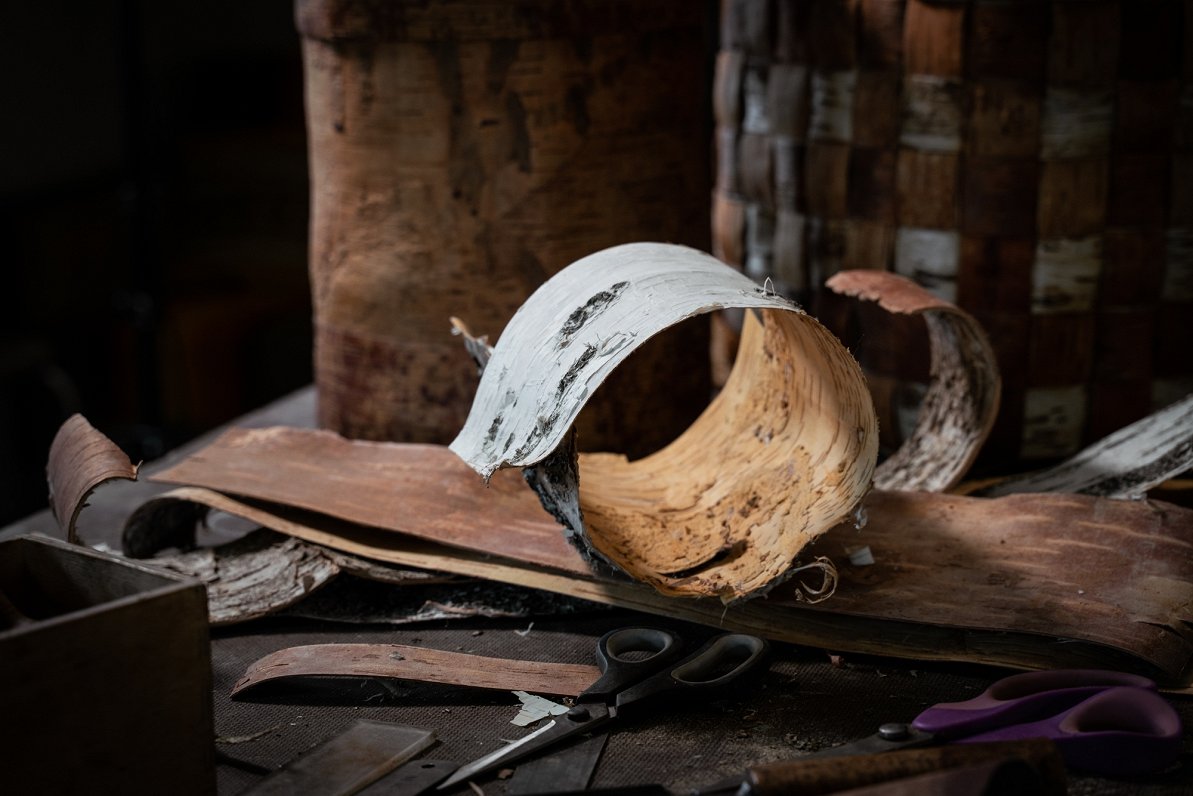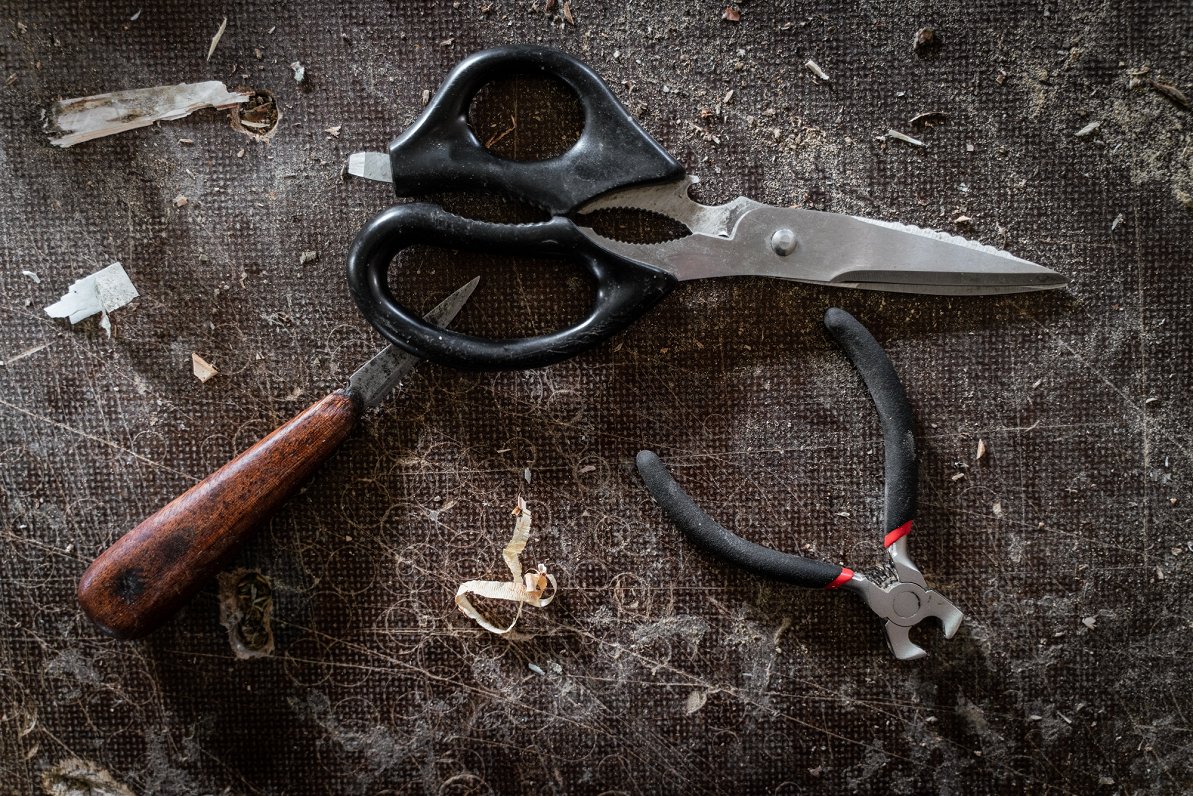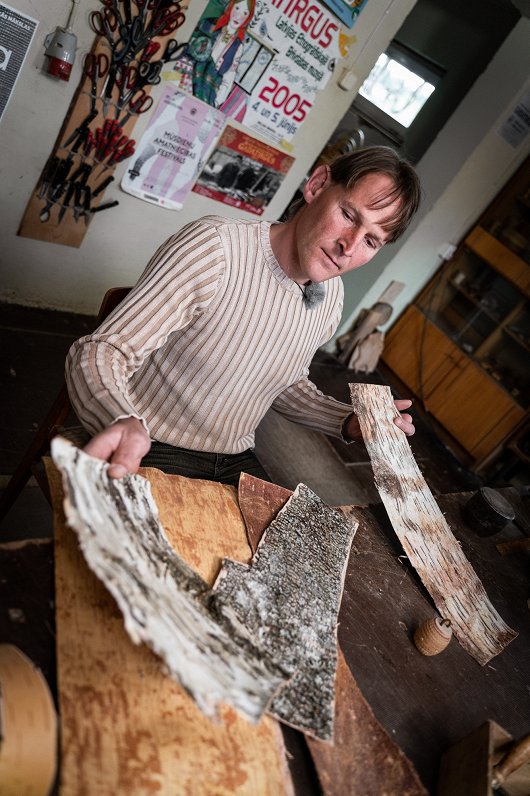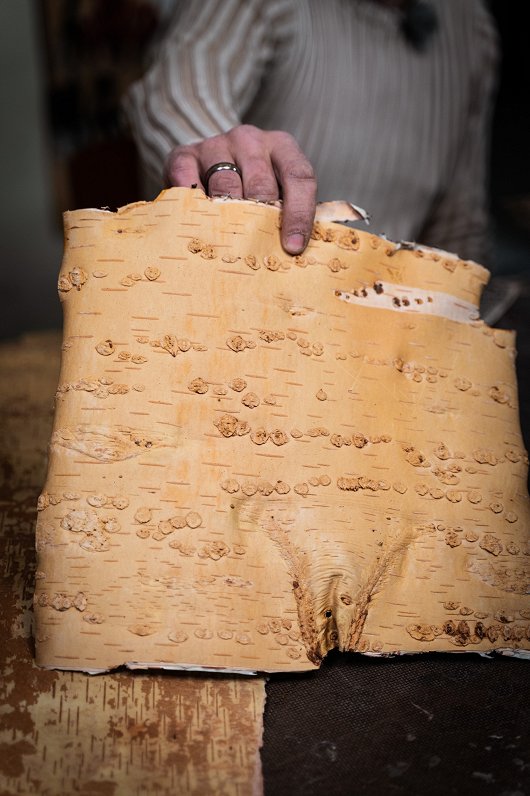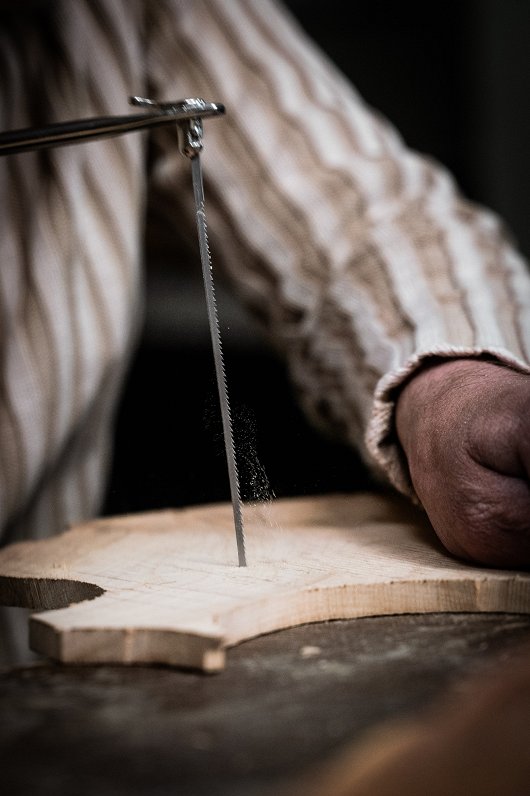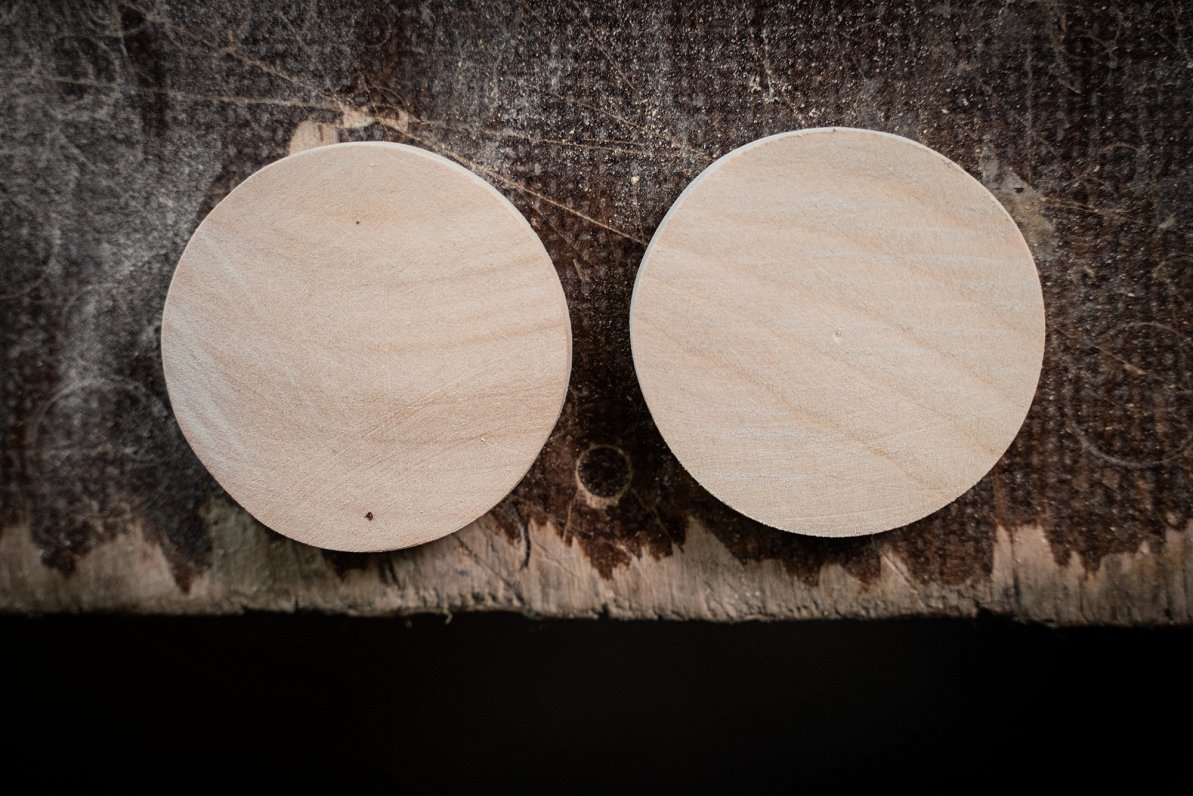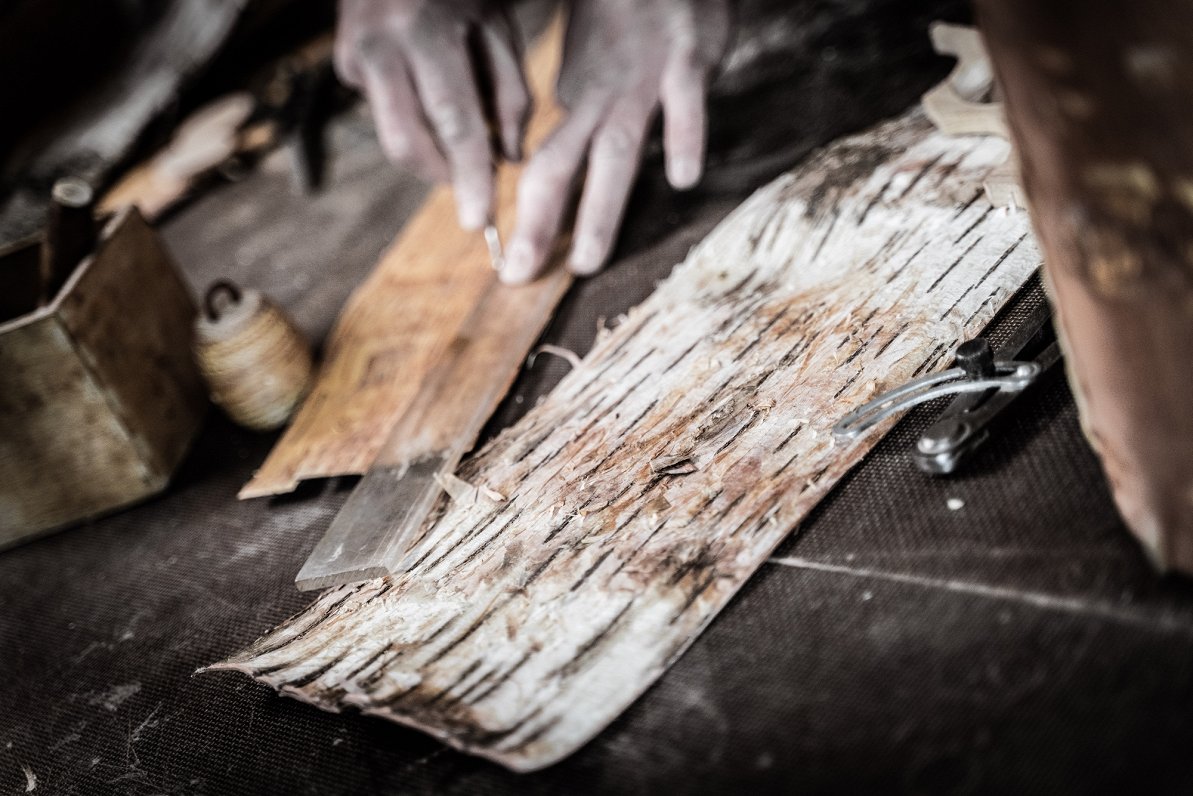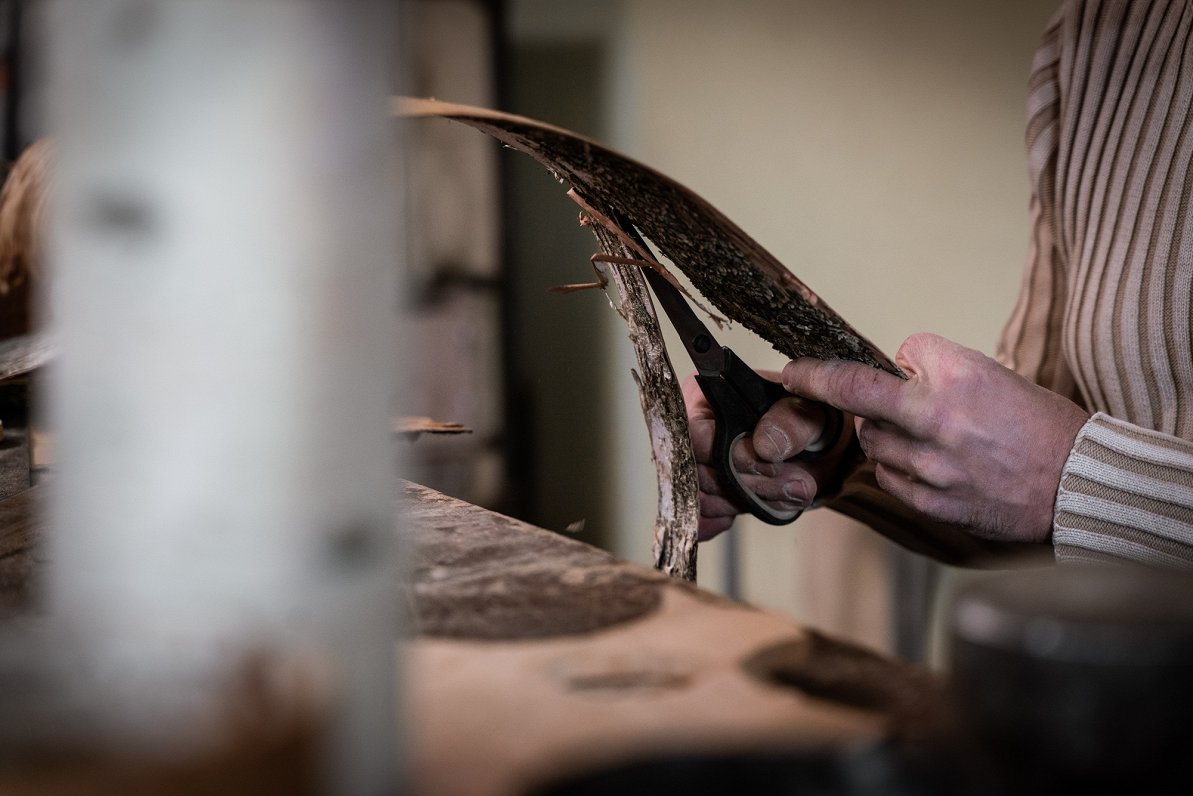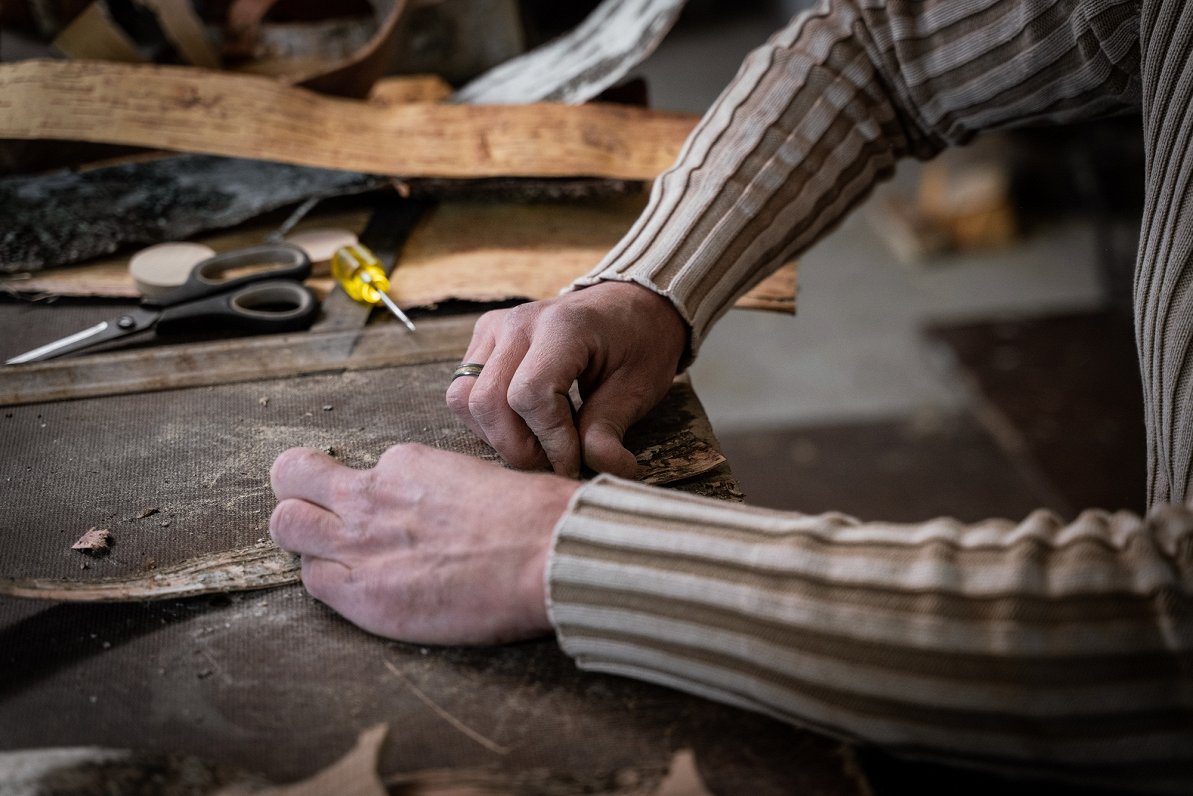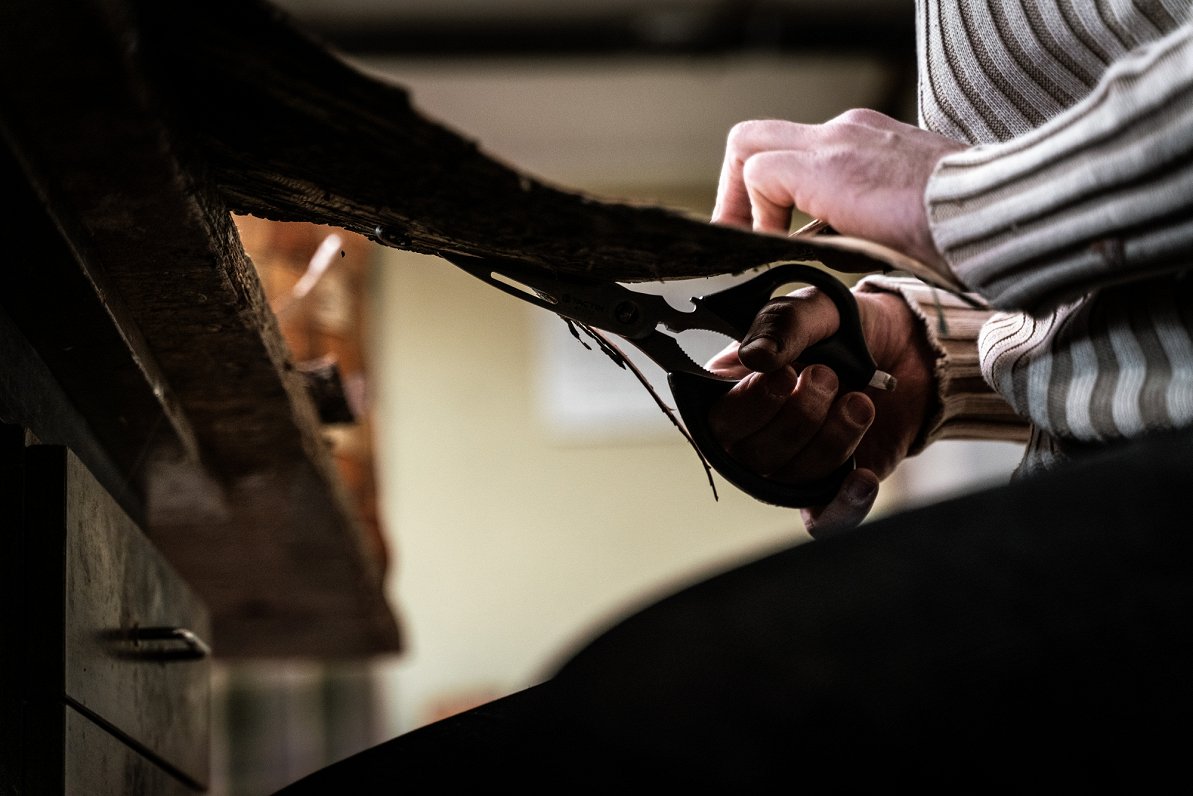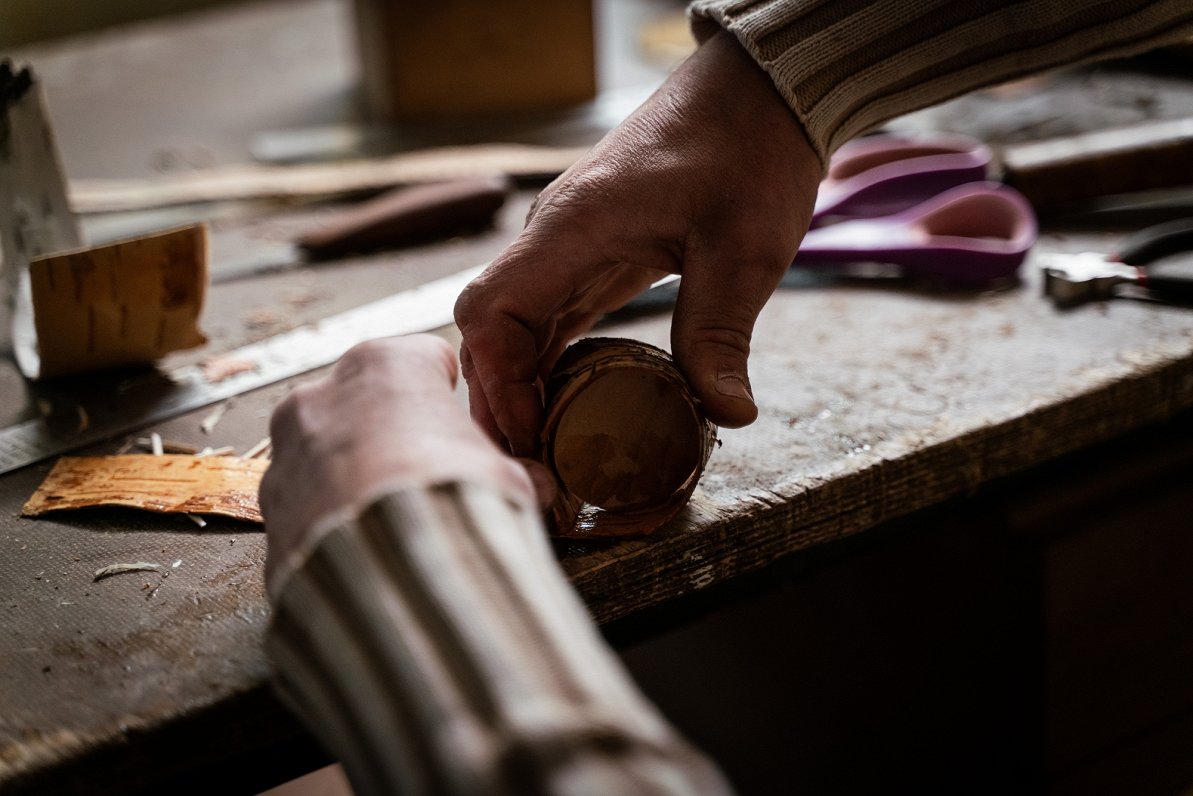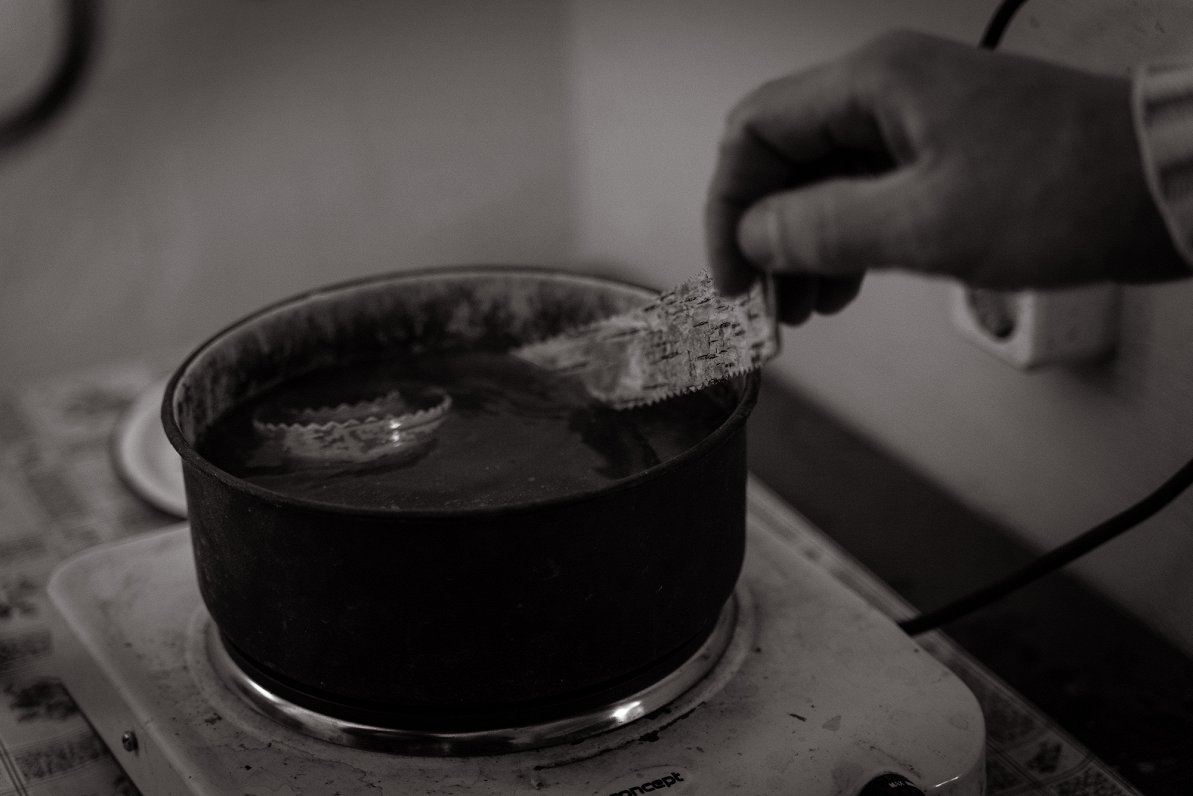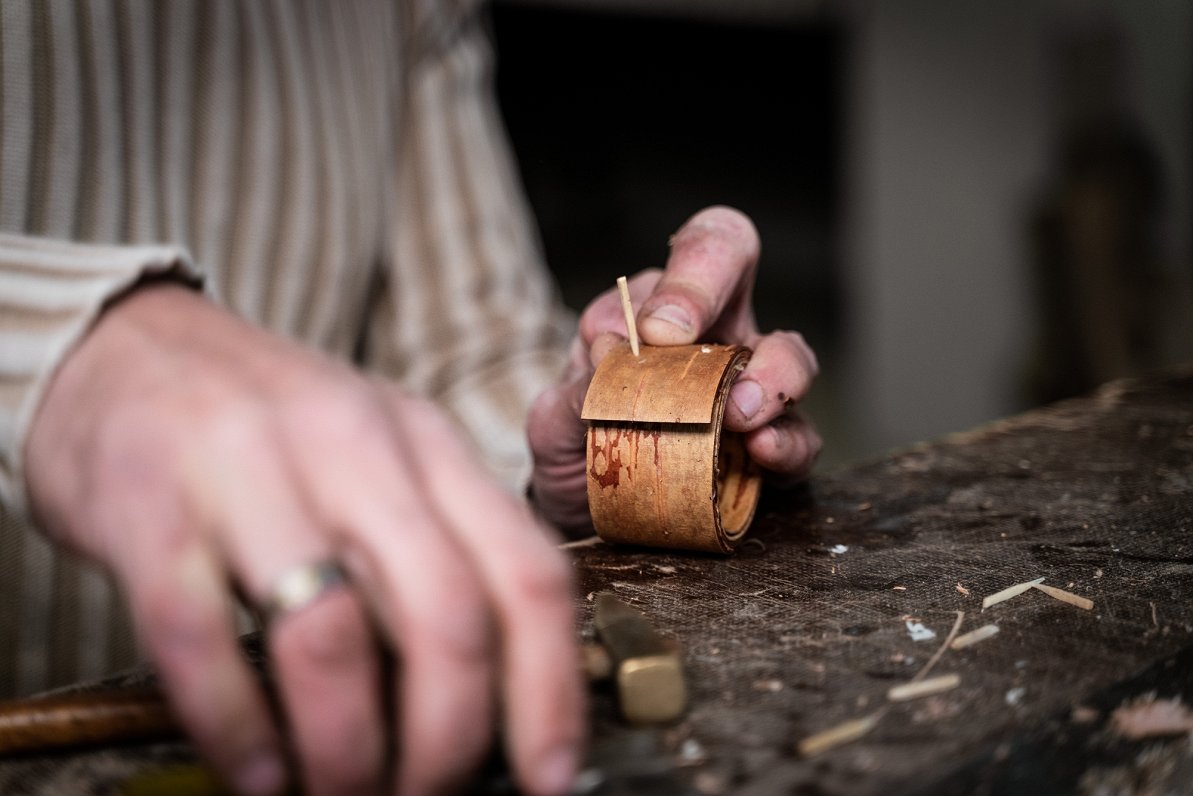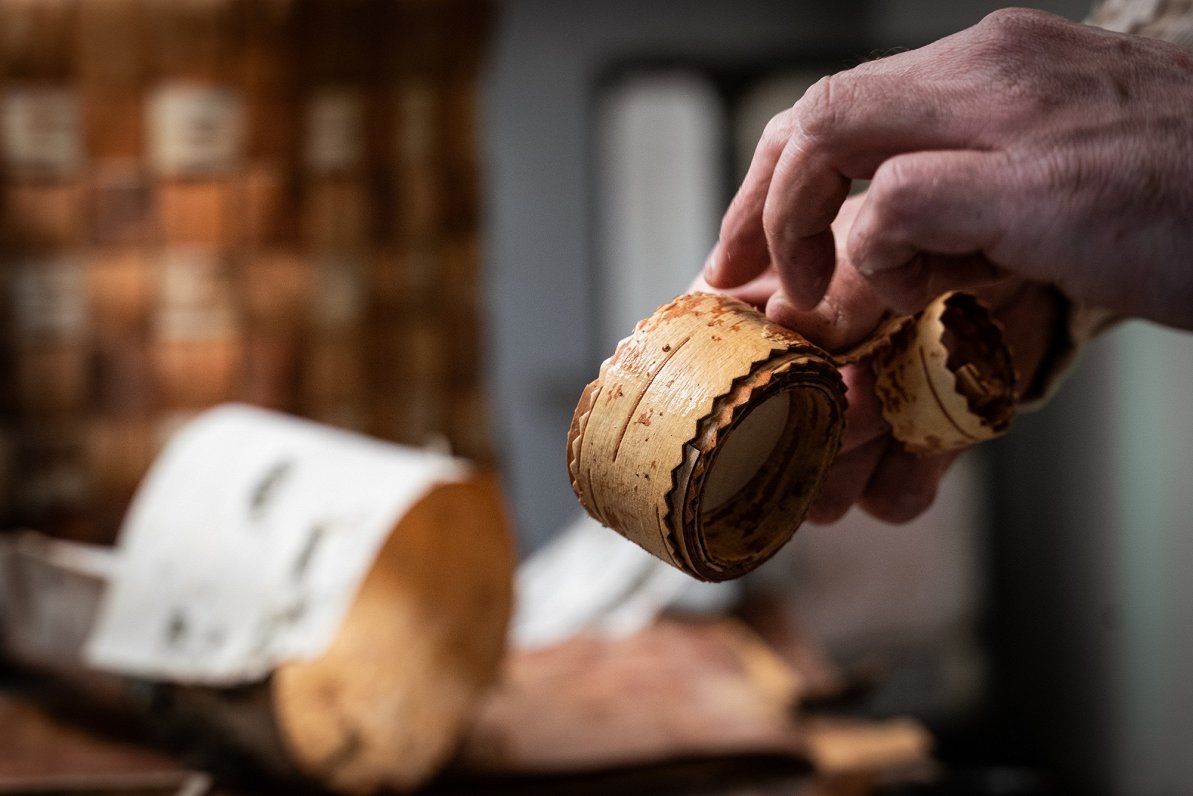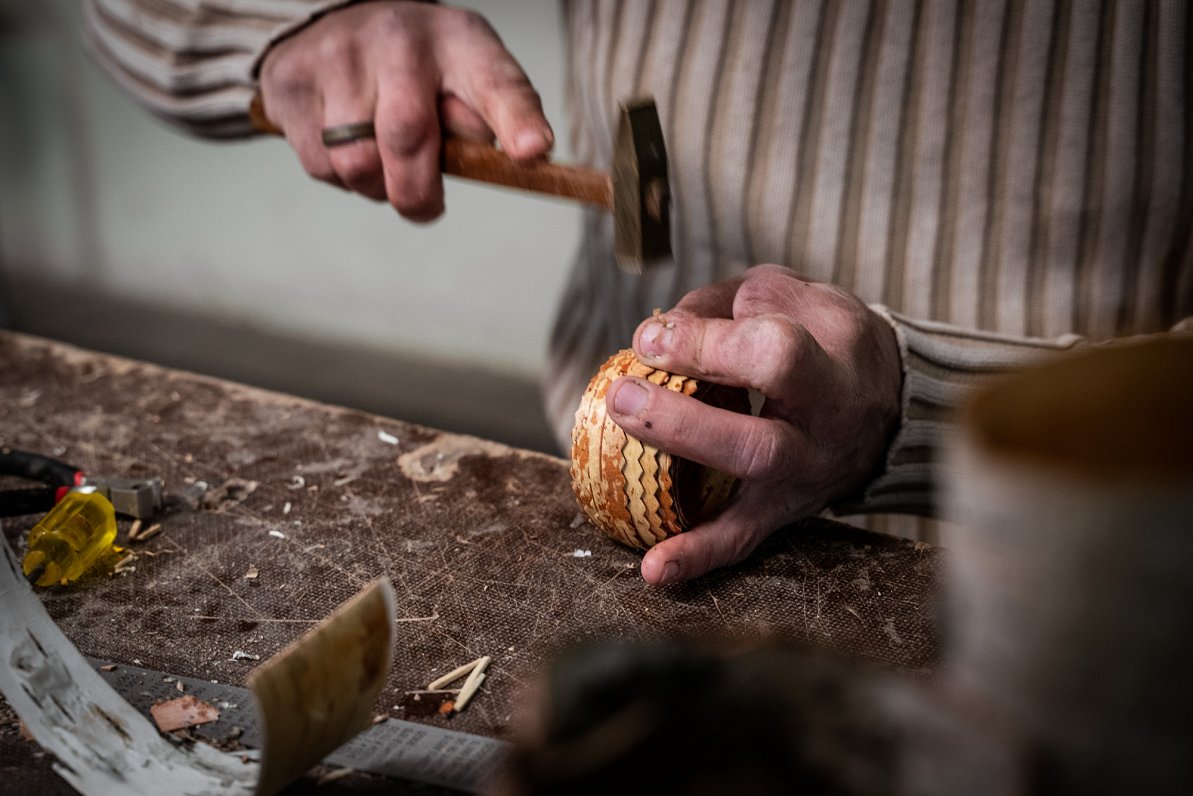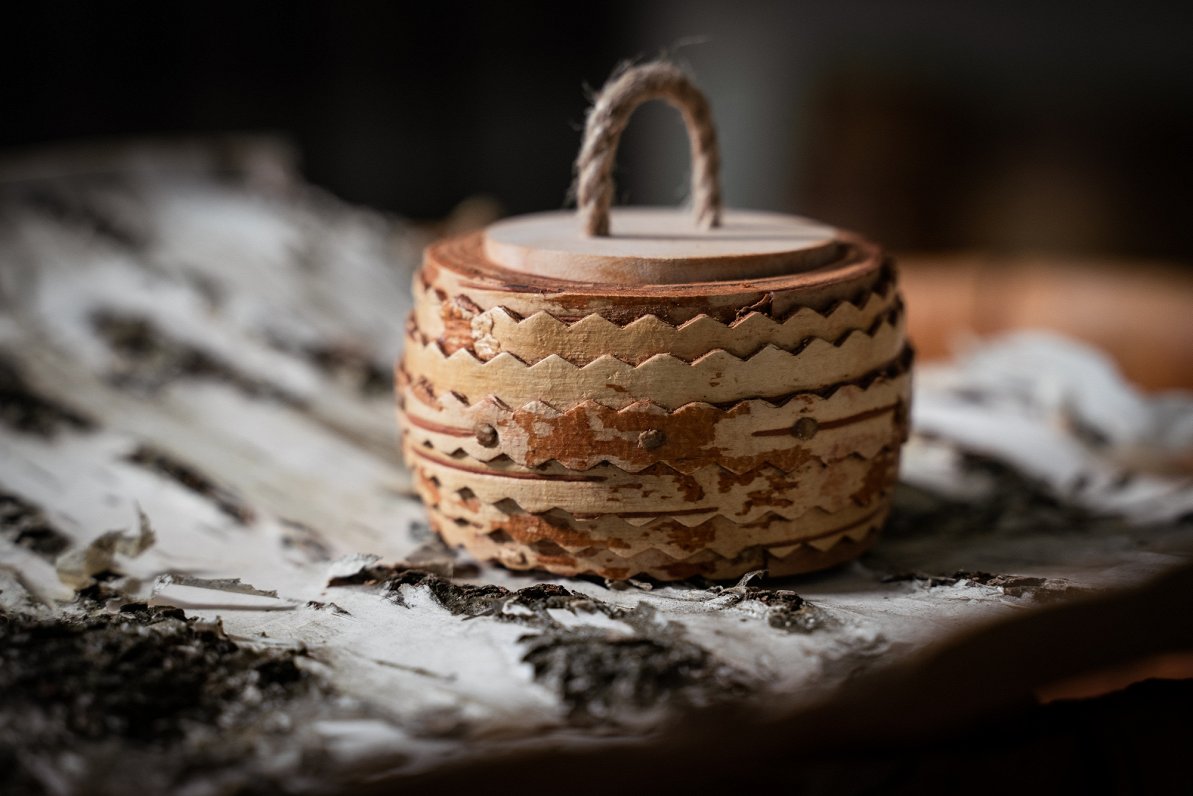Making useful things from birch-bark is one of the oldest crafts known to humanity. And a resourceful Latvian family is beautifully resurrecting this lost artform. See LSM's other story on this same family teaching the craft step-by-step.
With over half the country covered by forests, Latvians happily venture where other people fear bears and wolves. Lumber is a major export, and people go there to pick mushrooms and berries, make leafy sauna switches and Midsummer crowns, and commune with their pagan gods.
The friendship is particularly close with birches, whose sap is tapped to make a refreshing drink each spring. And an enterprising family near Līgatne, 70 km east of Riga, has mastered the ancient skill of turning the zebra-striped bark into valuable items.
Meet the Zvirbulis clan. Their surname, which means “sparrow” in Latvian, is perfect for folks who feel right at home in the woods.
Good wood
Since it can be easily worked with a blunt flint knife, birch-bark has been crafted since the Stone Age. Native peoples in Canada used it to make lightweight canoes and shelters. Its antiseptic and waterproof qualities make it ideal for storing foods and liquids, and vessels over a thousand years old have been found at Latvian archaeological sites.
By the late Soviet era, technological change and hostile state policies meant there were no more birch- crafters in Latvia. But in the 1990s, Pēteris Zvirbulis went to Russia and learned the trade from surviving masters there. Back in Latvia, his nephew Kaspars became an apprentice, and between stints as a builder in Riga, he eventually became a master craftsman himself.
“I’m very proud of Kaspars - he has outgrown me in every way, which is any good teacher’s ambition,” says Pēteris.
At the family property “Ikneši,” they patiently produce traditional containers called cibas, as well as toys, keyrings and other modern accessories. With Pēteris’ wife Vizma and Kaspars’ better half Madara doing intricate weaving from strands of birch-bark, it’s truly a family affair.
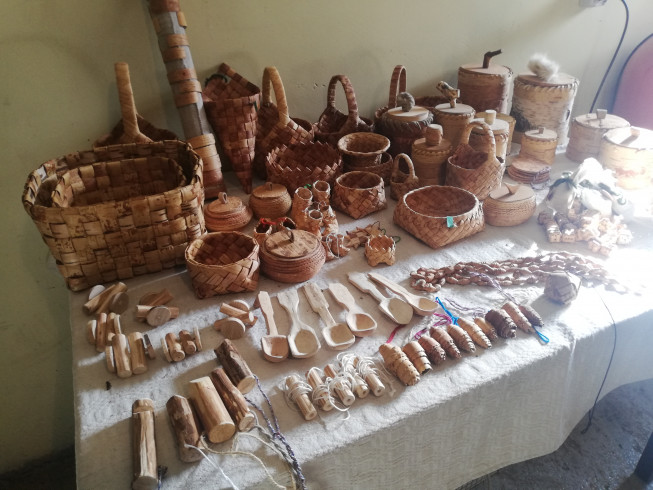
Traditionally, birch-bark is gathered from living trees, which can thrive for years if treated with appropriate care. However, due to issues around forest ownership, the Zvirbulis get their materials from felled trees, assigning value to a resource which society deems as worthless except as fire kindling.
It’s a lifestyle that binds them to cultures across the latitudes where birches grow, and down the generations. Pēteris proudly shows off a collection of Scandinavian, Russian and Ukrainian birchware, as well as an elegant jar made in 1946 by a Latvian Gulag prisoner.
In the blood
Demanding great patience and skill, birch-crafting is a labour of love and a risky endeavour. Pēteris had a hand surgically reattached following a workplace mishap, while Kaspars is missing a finger. They joke that it marks them out as real craftsmen.
That kind of character makes the tribulations of 2020 easier to bear. Due to the Covid-19 crisis, visits by foreign and Latvian tourists to the workshop, have all but ceased, so their income has dwindled. But Kaspars says he has thoroughly enjoyed travelling around Latvia over the summer selling his wares at local markets.
Efforts to bring on young apprentices have been unsuccessful, because young people today want an easy job and a quick buck, according to Pēteris. But perhaps Kaspars’ and Madara’s two-year-old son Klāvs will follow in their footsteps one day?
